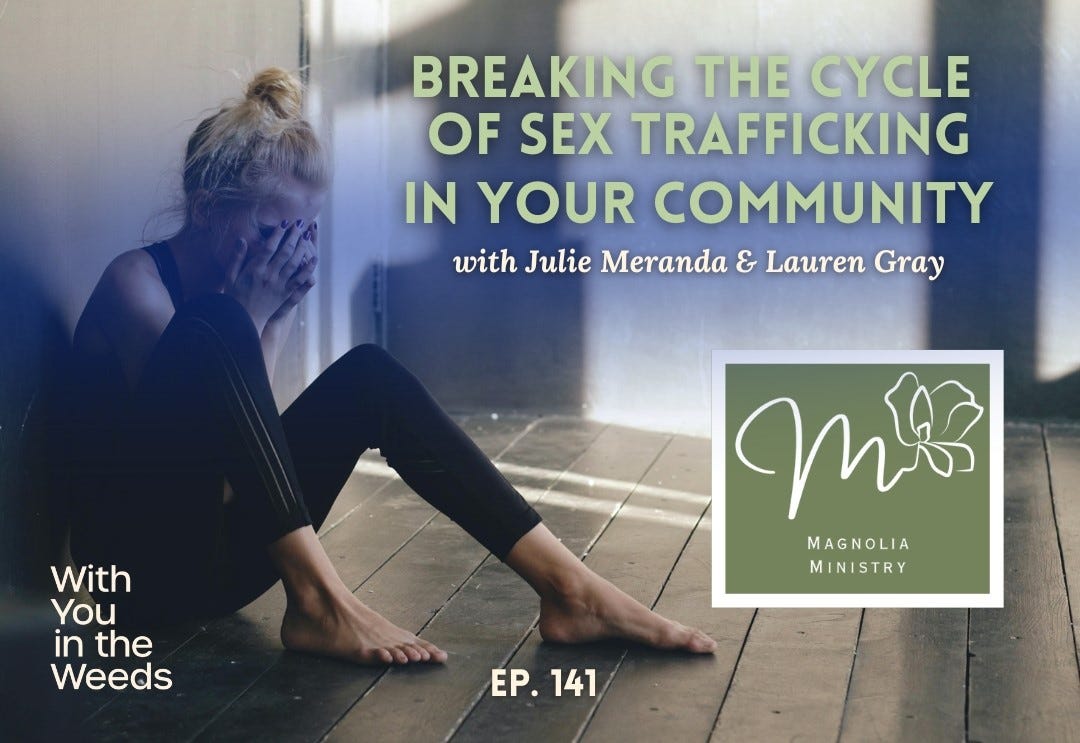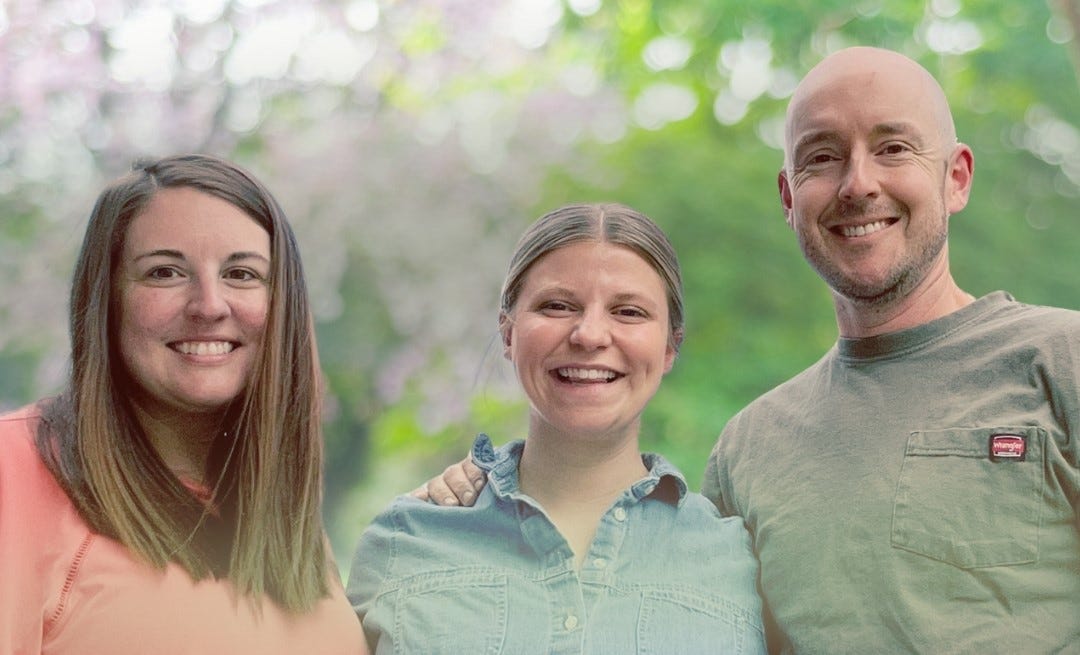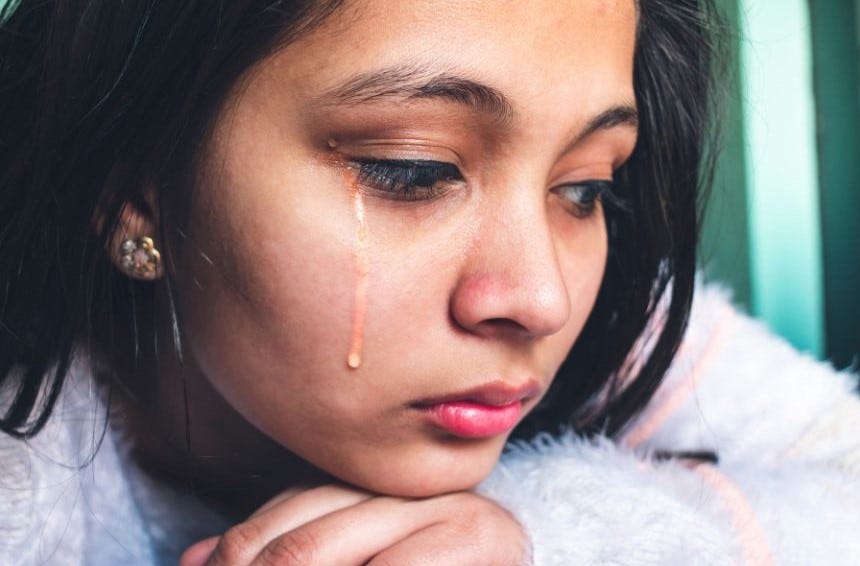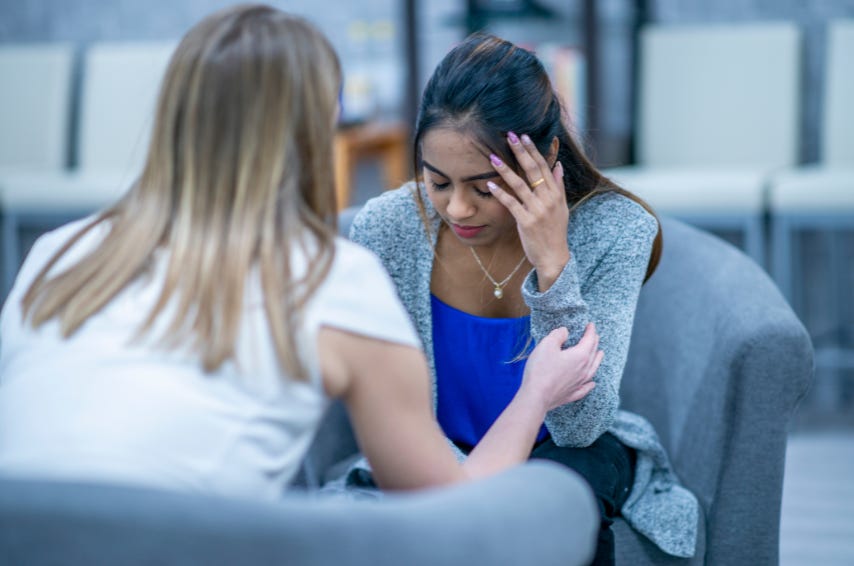Breaking the Cycle of Sex Trafficking in Your Community
Are you ready to confront a harsh reality?
The statistics regarding human trafficking are shocking and grim: according to some estimates, there are 50 million people living in modern-day slavery around the globe.
It’s tempting to think that it doesn’t happen in your own neighborhood, but the sad truth is, there is trafficking in every major city in the US. What role can you play, if any, in breaking this terrible cycle?
In this gripping episode of our ongoing series, Loving Your Neighbor as Yourself, Austin talks with Julie Meranda and Lauren Gray from Magnolia Ministry in Columbia, MO, about their work to guide sex trafficking survivors toward healing and freedom.
Magnolia’s work includes offering resources and care to those being exploited, providing support and preventative education for those at risk, and educating the community on signs of trafficking and ways they can help.
As you listen, you’ll hear about:
How ‘human trafficking’ is defined
Different types of trafficking
What you need to know about trafficking
Specific things you can do to help Magnolia Ministry with their mission
From a woman crediting God for answered prayers to a buyer rethinking his actions after a bold encounter, Magnolia’s stories reveal God’s redemptive power. You’ll be encouraged by the work that God is doing and feel emboldened to step up wherever God leads you.
Highlights of Austin’s Conversation with Julie and Lauren
Austin: Hello everyone! The issue we’re talking about today is so impactful. If you're like me, you’re probably sympathetic to a problem like this, but not sure exactly what you can do about it. What you’re going to find out is that there are small yet significant ways that you can make a difference in this area.
To help us understand this issue better, we have Julie Meranda and Lauren Gray from Magnolia Ministry with us today. Ladies, say hello and tell us who you are.
Julie: My name is Julie Meranda, and I am the founder of Magnolia. I started in the anti-trafficking field almost 10 years ago. I was born in Missouri and grew up in Jefferson City. My husband and I have been in Columbia now for three years. He's the pastor of Open Door Church. We've come to love the Columbia community and are trying to figure out better ways that we can serve here and make it a safer place.
Lauren: Thanks for having us! I grew up in Missouri too - the St. Louis area. I came to Columbia for college and then met my husband and stayed. I’ll be starting full-time with Magnolia in October, which I'm really excited about.
Austin: How did each of you develop the heart for this ministry?
Julie: About 10 years ago I went with my sister to an event at her church to hear from missionaries who went to Cambodia to work in the anti-trafficking movement there. They were back to raise support, and I got to hear their stories and started to research and do internships around this issue.
The more I learned, the more I realized that I have a lot in common with sex trafficking survivors. Many of them have suffered from poverty, sexual trauma, and abuse in their past. Some of those things overlap with my childhood experiences. I saw the way that God had protected me through those experiences. But a lot of these women don’t have any kind of protections.
My husband encouraged me to start my own organization, so I started Magnolia in 2021 under the umbrella of Open Door church, but we’ve grown from there and are now supported by many churches in the community.
Lauren: I first learned about human trafficking as an undergrad, and I volunteered with International Justice Mission and was really moved by what I was learning about. I was overwhelmed with how little I could find to do locally. I prayed about it and was working for a hospital as an OT (occupational therapist) when one of my co-workers told me about Magnolia.
Austin: That’s very interesting, thank you both for sharing. Before we get into what it is you do at Magnolia and how we can help, can you give us some definitions? What is sex trafficking, and are there different kinds?
Julie: There’s a legal definition of commercial sex acts, which is anytime there is a sex act or a sexually explicit performance that is given for anything of value. The items of value that are given (or promised) could be money, food, items, or shelter.
It’s considered trafficking when a commercial sex act is induced by force, fraud, or coercion. If the victim is under 18 years old, there doesn't have to be force, fraud, or coercion. They're automatically considered a victim of trafficking because a minor cannot consent to sex.
Some of the different kinds of trafficking include:
Familial Trafficking: When a family member, typically a parent, traffics their child for money or other gains, often linked to poverty, drug addiction, or generational trauma.
Intimate Partner Trafficking: Involves a romantic partner (e.g., husband or boyfriend) exploiting someone through manipulation or coercion into commercial sex acts.
Third-Party Trafficking: Conducted by a third party or manager (e.g., a pimp) who is not personally known to the victim, using force, fraud, or coercion to exploit them.
Survival Sex: Occurs when someone, often homeless or unhoused, exchanges sexual acts for basic needs like shelter, food, or other necessities. Considered trafficking due to the exploitative nature.
Austin: I need to ask, why would a parent traffic a child?
Julie: It’s hard to understand. For them, it's a have-to. They need money for drugs, to feed their addiction. If you look at the trauma cycle, it's possible that the mom was also trafficked by her mom, and now she's trafficking her daughter. And unfortunately in Missouri, the majority of the time, if there is a parent who's doing the trafficking, it is surprisingly the mom.
Lauren: We have a big misconception in the United States about what trafficking looks like. You see movies like Taken when you think of people being kidnapped off the street and put into chains. But here, the chains are mental rather than physical. A trafficked girl or woman may have the freedom to go to Walmart on her own, but the fact is that she’s being tracked while doing that.
They are told lies like, “This is for your good” or “This is normal” or “This is just the way the world is.” If someone is in a cage, you can unlock the cage, but when someone has years of psychological trauma, it’s not easy to get out of it. The psychological chains can be even more insidious and harmful than the physical ones.
If someone is in a cage, you can unlock the cage, but when someone has years of psychological trauma, it’s not easy to get out of it. The psychological chains can be even more insidious and harmful than the physical ones.
Austin: What does a typical day/week look like in your job?
Julie: It’s different every day. It really depends on whether it’s an outreach day or a non-outreach day. We have one specific day each week that we go to areas where women are being exploited, which could be strip clubs, bars, or hotels.
We start by giving them a gift because a lot of times they don't get gifts. We make sure she knows that there are no strings attached – it’s just a kind gesture to let her know we care about her. Then we ask her if she needs prayer for anything. We let her know we’re there for her if she needs us.
On the non-outreach days, we are studying up on this issue, researching, reading books by trafficking survivors, contacting donors, praying, and prepping the gifts that we take to them.
Austin: What’s something that people wouldn’t expect that you want them to know about human trafficking?
Julie: We care deeply about the buyers and the men. We don’t want to bash men. We hate the evil that’s happening, but we recognize the hardships, struggles, and traumas present in them as well. As one man said, “I was captive of one thing, and she was captive of another.” We can’t get rid of trafficking unless we get to the root of it, which is the demand, which comes from sinful human nature.
Lauren: People are surprised to learn that Missouri is #4 in the nation for trafficking. Roughly 24,000 people are trafficked every day. Only 1% of them are seeking services. A trafficked person literally might be your neighbor. On our website, you can learn about signs, like barcode tattoos, that will open your eyes to the prevalence of trafficking. We don’t recommend that you confront suspected victims – leave that to trained professionals. But you can contact an anti-trafficking organization for help and advice.
Austin: Can you share some stories of people impacted through Magnolia?
Julie: We were meeting with a woman at our outreach place. She seemed very anxious. She told us, “I really need prayer. I am trying to visit my family in Arizona. I haven't been able to get there. My car keeps breaking down." We prayed for gas money, we prayed for her car, we prayed for her family and her journey and her safety.
A couple of weeks later, we were back at the outreach place, and she was there, and she came running up to us. And the first thing she said was, "Who is your God?" And I was like, seriously? This is an Old Testament question! “Who is your God?” We said, “What makes you ask?” and she told us that everything worked out for her to see her family. We prayed and she credited everything to God.
One time, during a Super Bowl, we had posted fake ads on websites where men would go to buy women. They were thinking that a woman working in the industry would be contacting them, but instead they got one of us calling to teach them about sex trafficking. The first guy I called answered the phone, and I expected him to just sound so mean, like a pimp, but he sounded like a dear friend of mine. His voice was exactly the same.
My heart broke at that moment because I was like, these aren't just scary men who are purchasing women. These are men who are struggling with pornography. They’re lonely, they’re divorced, they’re hurting. They are men who have fallen into sexual temptation and the line keeps getting blurred and they need restoration.
I shared with him what really happens when a woman is purchased. He said, “I've never done this before and I'll never do it again.” Whether that's true or not I don't know right but at least in that moment, he was shook. Because he had to face the implications and realities of what is taking place.
Austin: That’s incredible! Are there any things that bring you strength when doing this difficult work?
Julie: We lean heavily on the Bible verse in Isaiah 61:1, “The Spirit of the Lord GOD is upon me, because the LORD has anointed me to bring good news to the poor. He has sent me to bind up the brokenhearted, to proclaim liberty to the captives, and the opening of the prison to those who are bound."
We also take strength from remembering that in Jesus’ own lineage, he had women who were prostitutes. The women that society looked down upon. It’s written in Scripture, which means that it’s important and that God pointed it out for a reason. God still used them. And that's the same thing we want to share with these women. They have more in common with the lineage of Jesus than you or I do.
Lauren: We want to remind them of their value and how much God loves them. We could focus only on their physical needs or even emotional needs, but if we aren’t introducing them to Christ, then we’re just putting a band-aid on the situation. In order to have kingdom impact, we have to bring it back to Jesus. In fact, women who hear about Jesus are 50% less likely to return to their trafficker. It gives them hope.
Austin: What can people do to help?
Julie: We recommend that people go to our website and donate – we run on private donations. We also have our Amazon Wish List at our website and those are items that we need to do our work with the women. We need volunteers and board members, so if you live in Missouri, consider helping in that way. Last, we have prayer requests at our website, and we appreciate it so much if you can pray for us.
Austin: What I’m taking away is that while you can’t help everyone, through faith and action, you can change one life caught in trafficking’s grip. Do for one what you wish to do for all—pray, give, or act to bring hope to trafficking survivors. Thank you to Julie and Lauren for being with us today, and please check out their information below.
Recommended Resources:
Magnolia Ministry – Help women find freedom, safety, and wholeness
Donate to Magnolia Ministry - A donation of any size is greatly appreciated
Magnolia’s Amazon Wish List - Give a gift to a hurting woman in Jesus’ name
Looking to volunteer, or have questions about the ministry? Email Julie at jmeranda@themagnoliaministry.org





